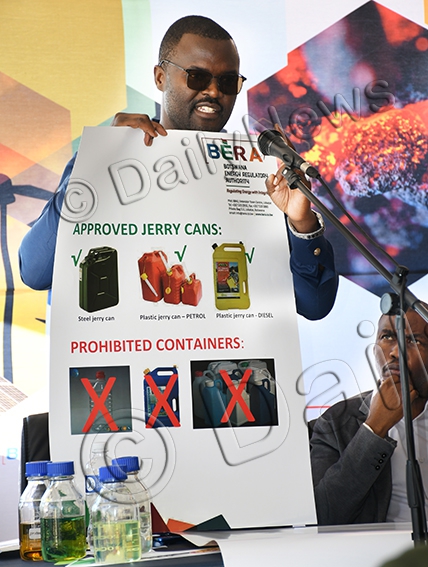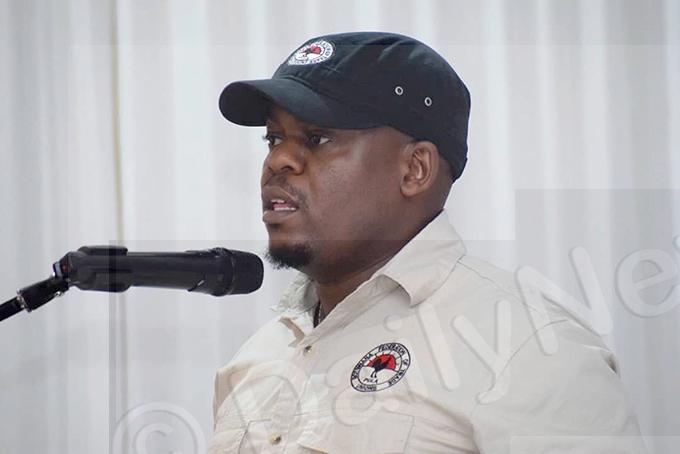Official urges precaution when refuelling
19 May 2024
Botswana Energy Regulatory Authority (BERA) has urged the public to adhere to safety precautions at filling stations.
Speaking during a kgotla meeting in Letlhakeng, Engineering Manager-Petroleum at BERA, Mr Gift Bakumbi expressed concern that safety precautions at filling stations were taken for granted, yet violating them posed risk to the public and the fuel facility infrastructure.
He said safety precautions such as switching off engine when refuelling, avoiding jump-starting a vehicle and the use of cell phone at filling stations were some safety measures being violated most of the time.
He warned that jump-starting a vehicle in a filling station could produce a spark that could ignite fire.
Mr Bakumbi said keeping the engine running while refueling was also risky as it could release hot gas from the exhaust that had the potential to start fire.
He also appealed to the public to handle fuel properly emphasising that it must be stored in right containers.
When using plastic made jerry cans, he said, it was important to remember that the red can was used for petrol and the yellow one was meant for diesel. Mr Bakumbi said both cans should have a code starting with UN, which shows that it was a United Nations approved jerry can.
He said putting fuel in any other type of plastic was not recommended, particularly that fuel dissolves part of the plastic which would contaminate the fuel.
“This contaminated fuel can block injectors, injector pumps filter and have a negative impact on vehicle performance,” he said.
Mr Bakumbi said keeping a receipt or demanding receipt after refuelling was important for it was needed as evidence in the event that one wanted to lodge a complaint with BERA.
He said fuel should be kept out of reach of children as it was poisonous. Earlier, BERA Acting Chief Operations Officer, Mr Batsumi Rankokwane said BERA Act which came into effect on April 1, presented Batswana with the opportunity to participate in the fuel industry.
He said the act dictated that only Batswana owned and majority shareholding companies were allowed to import fuel.
He explained that to be granted a license to import fuel, it was a requirement that one should be able to import at least 160 000 litres of fuel of per month.
Mr Rankokwane said importing 200 litres of fuel per month for personal use did not require a license, under the new act.
He said a 30 000 litres storage facility or below for subsistence use only was not licensed.
BERA chief operations’ officer said fuel depot or storage was licensed and it was required to be constructed in prescribed manner and meet specifications.
Manufacturing of fuel and fuel pipelines, he said were other business opportunities that Batswana could explore and it was covered under the act.
He said the country’s fuel consumption stood at 1.2 billion litres per year which translated to 100 million litres per month.
Mr Rankokwane, who noted that escalating Middle East tensions posed risk to fuel supply and could spike prices, said Botswana continued to find alternative sources of fuel supply. ENDs
Source : BOPA
Author : Mothusi Galekhutle
Location : Mothusi Galekhutle
Event : Kgotla Meeting
Date : 19 May 2024






